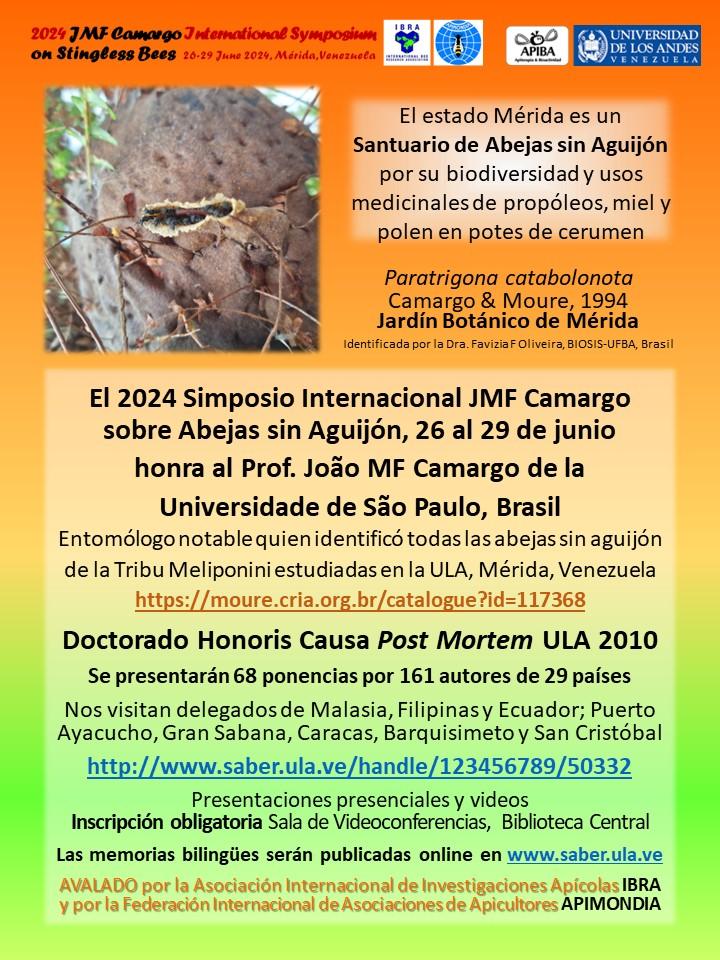I have known Dr Patricia (Pat) Vit since our collaboration on the book Pot-Honey: A Legacy of Stingless Bees in 2013 and have come to know over that time what a hard-working, prodigious researcher and writer she is. In February this year, she contacted me about her plan to organise an International Symposium on Stingless Bees in late June 2024. Anyone who has undertaken such a task knows all too well the huge commitment this is, even when one has the services of Professional Conference Organisers- let alone organising a Symposium that is heavily reliant on many video-recorded presentations. However, I hadn’t accounted for Pat’s tenacity and tireless activity, and who almost single-handedly has managed to bring this plan to fruition with this Symposium.
Its naming as the 2024 JMF Camargo International Symposium on Stingless Bees is an inspiring choice. João Maria Franco de Camargo was one of the great Brazilian entomologists, besotted by bees, and widely researched and published on stingless bees, particularly Neotropical species. He left a great legacy for others to follow. Of course, the inspiration behind this Symposium initiative was Dr Eva Crane, an outstanding bee researcher and writer, and founder of the Bee Research Association (the forerunner of IBRA) -she was IBRA’s first Director, and for many years was also chief editor of the Journal of Apicultural Research and Bee World.
Stingless bees, despite being widely distributed in tropical and subtropical regions and being comprised of countless more species than honey bees (according to Engel et al. 2023, 605 described extant species in 45 extant genera), have been only relatively recently been recognised as “MOST USEFUL” species- through their ecosystem services such as pollination, as well as increasingly for the many unique qualities and attributes (although well-known to many indigenous cultures) of their colony products such as pot-honey, pot-pollen, cerumen, propolis and geopropolis.
These Proceedings provide evidence of the great amount of work currently being undertaken on stingless bees, and report new findings from around the globe, while rightly (in my view) focussing on the large number of Neotropical species. There are 160 delegates participating in this Symposium from 27 countries, with 68 papers. This is providential, as it is the same number of years that Professor Camargo spent on this earth! While within the papers there is a strong emphasis on chemistry and bioactivity/medicinal uses of colony products, other diverse topics such as stingless bee botanical resources (including pollen spectra), stingless bee keeping practices and community engagement, pollination and ecosystem services, pests and diseases, and stingless bee conservation address other important aspects and contributions of these wonderful creatures.
In addition to this book of Proceedings and the oral presentations, there are a number of other activities (both social and educational) in the Symposium that will engage and entertain those able to attend in person. I believe this Symposium will be a great success and will hopefully be the harbinger of future International Symposia on Stingless Bees.
Robert Spooner-Hart Sydney, Australia June, 2024

